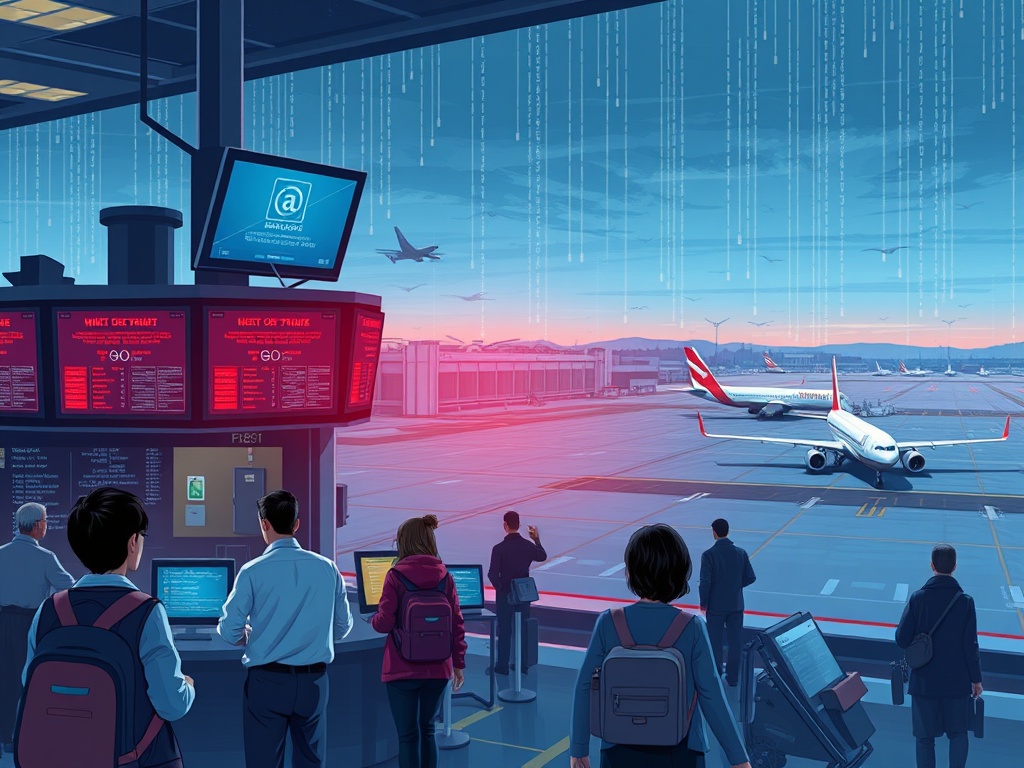
A cyber attack targeting a provider of check-in and boarding systems has disrupted operations at several major European airports, including Heathrow, the continent’s busiest airport, resulting in flight delays and cancellations.
Collins Aerospace, the developer of the MUSE (Multi-User System Environment) software used for flight operations, reported experiencing a “cyber-related disruption” that affected numerous airports across Europe.
While Collins Aerospace did not disclose the names of the impacted airports, confirmed reports indicate disruptions at Heathrow, Berlin Airport, Dublin Airport, and Cork Airport. Berlin Airport stated, “Due to a technical issue with a system provider operating across Europe, check-in wait times are longer. We are working on a swift solution.”
Brandenburg Airport in Berlin also reported delays due to the cyber attack, while Brussels Airport had to implement manual boarding procedures, leading to delays for most outgoing flights. In a statement, Brussels Airport confirmed the cyber attack occurred on the night of September 19, affecting several European airports, and requested other airports to cancel half of their departing flights to mitigate long delays and potential cancellations.
Despite the disruptions, Heathrow Airport noted that “the vast majority of flights have continued to operate,” advising passengers to check with their airlines regarding potential impacts on their flights. Collins Aerospace’s parent company, RTX, stated the cyber attack had limited effects on electronic customer check-in and baggage drop, which could be managed by switching to manual processes. Some airports had to tag baggage by hand, contributing to slower boarding due to staffing shortages.
Authorities downplayed the overall impact of the cyber attack, asserting it had not severely disrupted European airports. A spokesperson for the European Commission revealed that an investigation was ongoing to assess the nature of the cyber attack, and they were closely monitoring the situation while collaborating with affected airports to restore operations and assist passengers. They confirmed that air travel safety had not been compromised.
The U.K.’s National Cyber Security Centre is also involved in the investigation, working alongside law enforcement and the software provider. Transport Secretary Heidi Alexander stated, “I’m aware of an incident affecting airline check-in and boarding, impacting flights at Heathrow and other European airports. I’m receiving regular updates and monitoring the situation. If you’re flying from Heathrow today, check with your airline before traveling.”
As of now, the identity of the threat actor behind the cyber attack remains unknown, with no group claiming responsibility. However, it is suspected that financially motivated hackers or state-sponsored actors may be involved. The motive behind the attack remains unclear, and RTX has not reported any ransom demands.
This incident has raised concerns about the reliance of multiple European airports on a single software supplier, particularly in the current geopolitical climate. As critical infrastructure, airports have become attractive targets for cybercriminals due to the large amounts of personal information they manage and the significant impact of any disruptions.
Source: cpomagazine Edited by Bernie.




